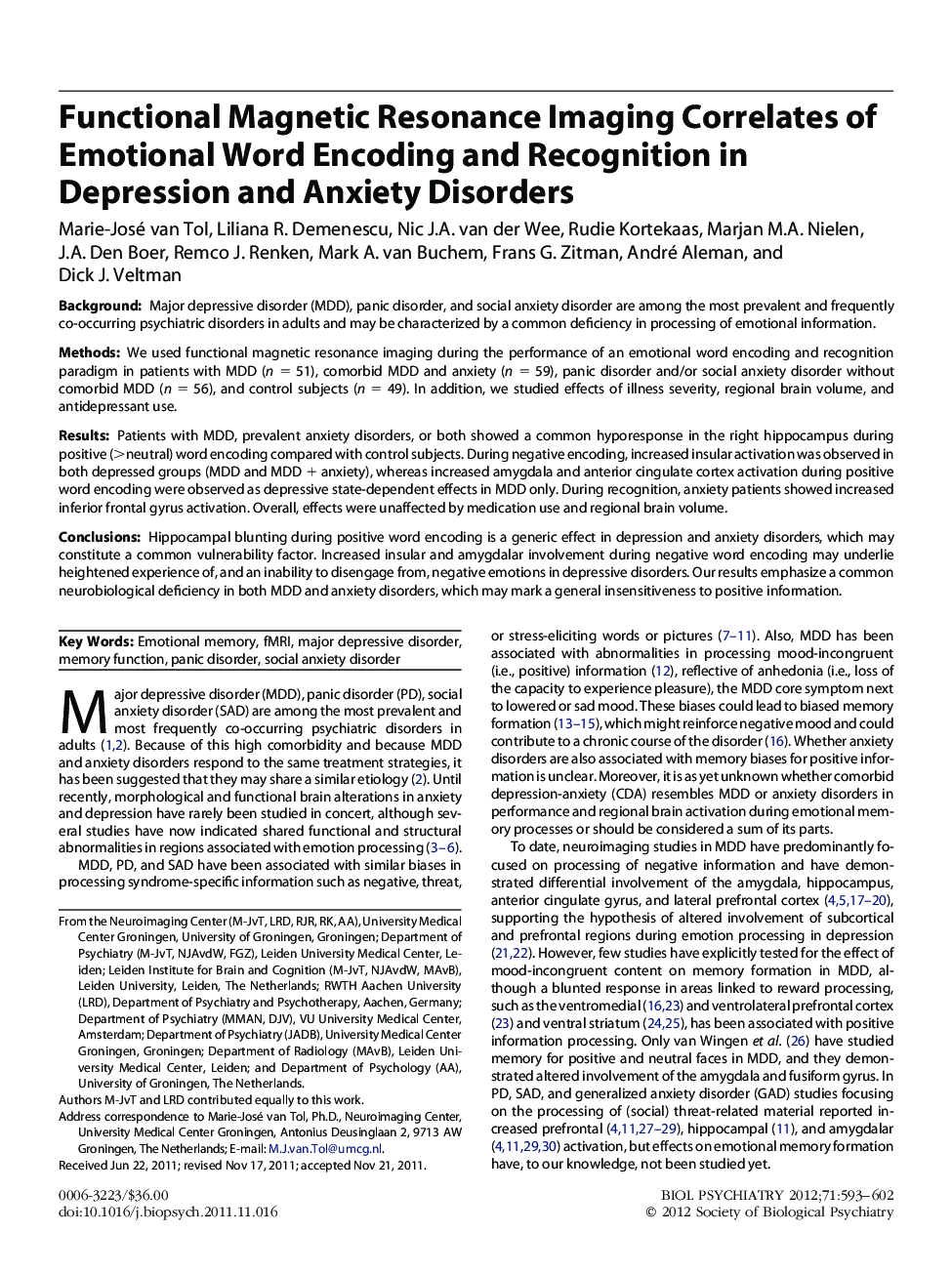| Article ID | Journal | Published Year | Pages | File Type |
|---|---|---|---|---|
| 6227842 | Biological Psychiatry | 2012 | 10 Pages |
BackgroundMajor depressive disorder (MDD), panic disorder, and social anxiety disorder are among the most prevalent and frequently co-occurring psychiatric disorders in adults and may be characterized by a common deficiency in processing of emotional information.MethodsWe used functional magnetic resonance imaging during the performance of an emotional word encoding and recognition paradigm in patients with MDD (n = 51), comorbid MDD and anxiety (n = 59), panic disorder and/or social anxiety disorder without comorbid MDD (n = 56), and control subjects (n = 49). In addition, we studied effects of illness severity, regional brain volume, and antidepressant use.ResultsPatients with MDD, prevalent anxiety disorders, or both showed a common hyporesponse in the right hippocampus during positive (>neutral) word encoding compared with control subjects. During negative encoding, increased insular activation was observed in both depressed groups (MDD and MDD + anxiety), whereas increased amygdala and anterior cingulate cortex activation during positive word encoding were observed as depressive state-dependent effects in MDD only. During recognition, anxiety patients showed increased inferior frontal gyrus activation. Overall, effects were unaffected by medication use and regional brain volume.ConclusionsHippocampal blunting during positive word encoding is a generic effect in depression and anxiety disorders, which may constitute a common vulnerability factor. Increased insular and amygdalar involvement during negative word encoding may underlie heightened experience of, and an inability to disengage from, negative emotions in depressive disorders. Our results emphasize a common neurobiological deficiency in both MDD and anxiety disorders, which may mark a general insensitiveness to positive information.
